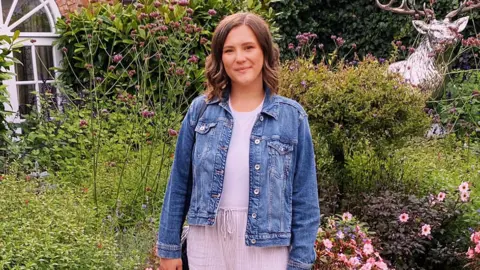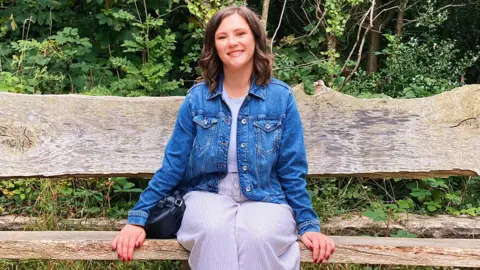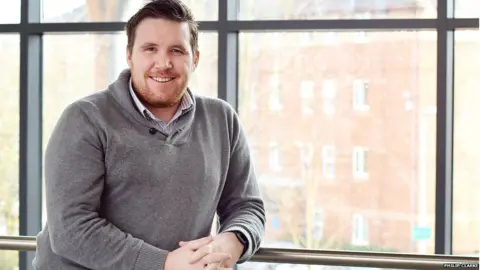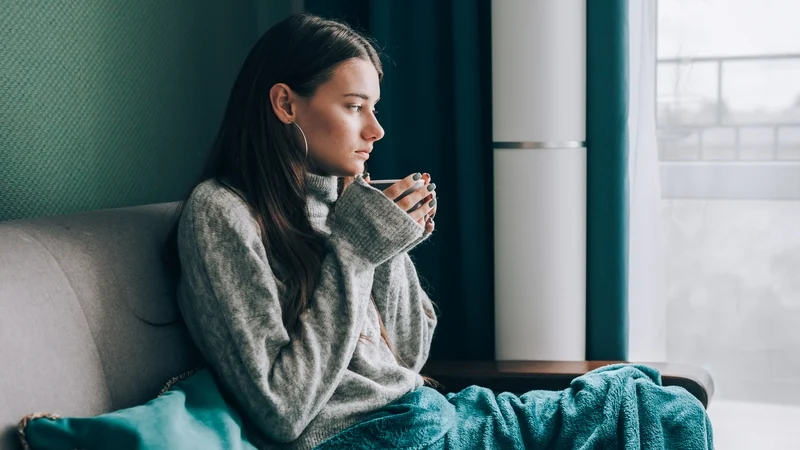Christmas is over, it’s cold and dark outside and you may be in an endless cycle of doomscrolling.
Blue Monday – also known as the most depressing day of the year – has been trending online.
It might feel relatable after the past year but, unsurprisingly, there’s nothing scientific about it.
The name was reportedly coined by psychologist Cliff Arnall in 2004, it falls on the third Monday in January every year.
This has been disputed by others over the years.
He came up with it after a holiday company asked him for a “scientific formula” for the January blues.

Sophie Edwards, from Kent, has suffered with panic attacks and anxiety since the age of seven.
The 27-year-old thinks labelling one day a year can be damaging for people dealing with their mental health issues.
“I think Blue Monday is a load of rubbish to be honest. A completely made-up marketing gimmick – it’s just a label on an ordinary day,” Sophie told BBC Newsbeat.
“But the messaging about it being the ‘most depressing day of the year’ can be daunting for people who already have a mental illness.
“We all have our good and bad days and they have nothing to do with a random made-up day in January.
“I like to plan ahead – so if I look at a day and see that it’s labelled the most depressing day of the year I’ll get anxious about that and think that I need to be happy on that day.”

“Instead of leaning into the gimmick about it being a ‘depressing day’, I use the opportunity to catch up with a friend over a cuppa.
“It’s a great way to take a moment out of our busy lives and check in on how we’re doing.
“I’ve seen a lot of people online saying things like: ‘Today is just another day, but if you do need someone to talk to, I’m here’.
“It’s raising awareness that there is a massive support network both on and offline,” she says.

Dr Philip Clarke, a lecturer in psychology at the University of Derby, agrees.
“I started speaking out against Blue Monday when I saw companies were trying to use it as an excuse to sell things,” he said.
“I can understand why people would feel down in January, you’ve just come off Christmas – spending a lot of time with family, overindulging and it’s a lot darker outside.
“The key thing to remember is that Blue Monday isn’t scientifically proven – there’s not even proof January sees a rise in mental health referrals although it may seem that way,” he adds.
“But Blue Monday is getting people having those difficult conversations about depression and anxiety and what you can actually do to help with that.
“I think that’s a really strong benefit that comes with it.”
There have been suggestions to turn Blue Monday into Brew Monday – with mental health charity Samaritans encouraging a chat with family and friends over a virtual cup of tea.








